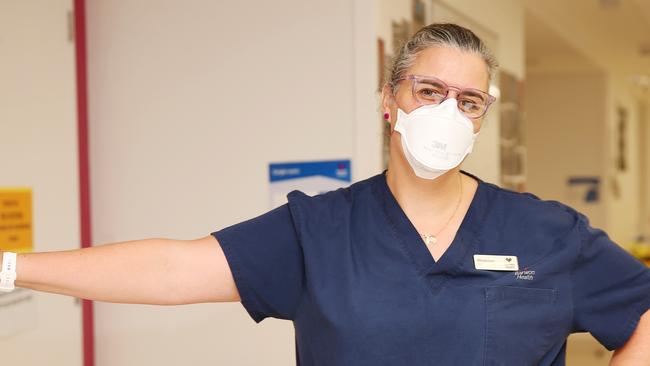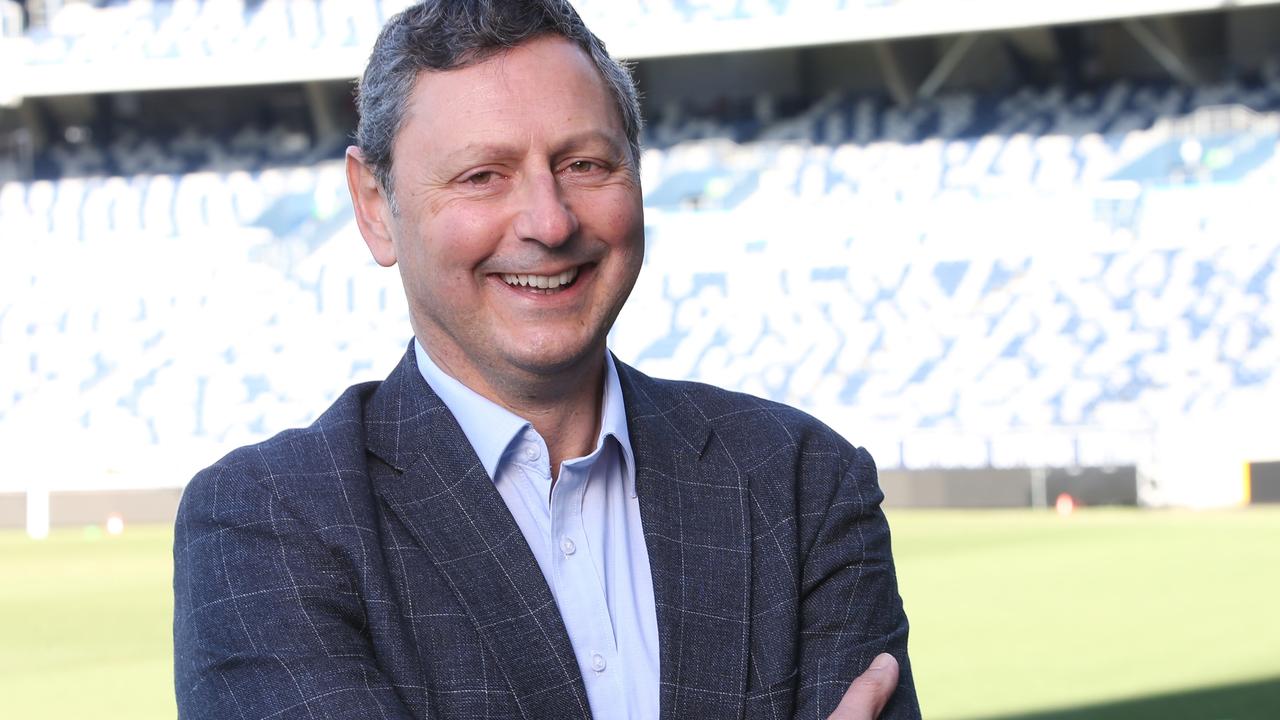A look back on the second anniversary of Geelong’s ongoing coronavirus battle
Barwon Health’s frontline health staff have detailed how much their roles changed after Covid arrived in Geelong a little over two years ago — so far costing 51 locals their lives.
Geelong
Don't miss out on the headlines from Geelong. Followed categories will be added to My News.
A mysterious virus originating in Wuhan, China first graced the front page of the Geelong Advertiser in January, 2020.
Within months, the coronavirus had changed the lives of our region’s residents to a previously incomprehensible extent.
According to data provided Barwon Health, as of March 3 this year, there had been 51 Covid deaths among people from the Barwon South-West region since the start of the pandemic.
Hundreds of people from the region had been hospitalised with the virus.
Early stories on the virus referred to testing locals and Chinese nationals as the first cases were identified in Australia.

On March 11, 2020, health officials confirmed the news Geelong had been dreading.
The region had its first known case of coronavirus: a woman aged in her 20s who had recently travelled to multiple locations in the US.
The woman, who worked at a Waurn Ponds supermarket, caught the virus in the US and became unwell on February 29.
Within weeks of Geelong’s first case Australia had entered lockdown.
Little did Geelong residents know it would be the first of eight lockdowns in less than two years.
Work had already begun at CSIRO’s Australian Centre for Disease Preparedness (ACDP), which had received a lab-produced version of the virus in late January.
CSIRO scientist and Covid-19 project leader Professor S.S. Vasan, from the ACDP in Geelong, said it was a matter of when, not if, cases emerged locally.
Professor Eugene Athan, the region’s public health boss, also said there had been a sense of inevitability about Covid arriving in Geelong.
“It was a little bit anxiety provoking, it sent a bit of our chill down our spine knowing it was inevitable,” he said.
Barwon Health had been on high alert and started to very rapidly rearrange its health service.
Barwon Health Covid ward nurse unit manager Rhiannan Parry has been working with coronavirus patients since the pandemic’s early days.
The ward she manages previously looked after general medicine, endocrinology and infectious disease patients before being turned into a Covid ward.
“There was certainly a lot of anxiety among our group of staff … especially when we started getting patients,” she said.
“There was a fear of the unknown.”
But Ms Parry said staff got into the groove, and the pandemic had brought “a lot of knowledge”.
“Now all of our Covid processes are second nature,” she said.
Prof Vasan said work undertaken at the Geelong lab, including trialling the AstraZeneca vaccine with ferrets, was a “significant achievement” for the team at CSIRO.
The vaccine has reached nations around the world.
He said another highlight was work around how the virus would evolve – keeping up with its evolution and working collaboratively with part of CSIRO called Data61.
Prof Athan said there had been a number of key developments in the region, including the ability to undertake contact tracing locally.
He also highlighted the “highly successful” remote patient monitoring program.
He said the region had been at the forefront in terms of vaccine coverage.
“That required a lot of redeployed staff, organising using the hub at the former Ford site in Norlane as an ideal space that was well known to people,” he said.
Prof Athan said Victoria’s establishment of local public health units meant quick and local responses.
Prof Athan, who was long Barwon Health’s infectious diseases boss, is the director of the Barwon South-West public health unit, which was established in January last year.
He said the local unit model had been a revolution in public health structure in Victoria.
“Covid is still number one on our agenda, and it’s around preparedness,” he said.
He said the public health unit was focusing on vulnerable members in the community.
“Another variant … it’s certainly possible and people are forecasting that,” he said.
“If that did happen I think we have now improved all of our systems to respond effectively and to ramp up with surge workforce if we need to.”
Ms Parry said different variants had brought different challenges.
“We’ve had to adapt the way we care for the patients based on our knowledge and how the variant behaves,” she said.
Prof Athan said the Omicron wave, which surged late last year, put the health system under pressure.
“I think people were just starting to take a breath from the Delta wave having come under control,” he said.
“Just when people started to breathe a sigh of relief, and our systems had been tested and we started to reorganise ourselves, Omicron really did throw a spanner in the works.”
Prof Vasan said scientists would continue work including investigating long Covid – an issue they had been collaborating on with Barwon Health.
He said work supporting development of a warm vaccine that does not require refrigeration would also continue.
He said there was also need for drugs which could treat the disease, with researchers conducting a major project looking at existing drugs’ ability to treat Covid.
The study had identified some promising leads which were undergoing further evaluation, Prof Vasan said.

Prof Athan said it was “very likely” people would be asked to have a fourth vaccine dose about 12 months after their third,and new vaccines could give longer lasting immunity.
He voiced his astonishment and admiration for the way the community and health sector have worked together under such trying times.
Prof Athan said in the health community, people were extremely fatigued but morale was good.
“We’ve had a hell of a lot of great successes and we’ve generally kept our community safe and well informed,” he said.
“I’m very proud of our success managing the Covid pandemic.”
Ms Parry described Covid as “ a bit of an onslaught”.
“I’ve been a nurse through swine flu, SARS … this has just been something else,” she said.
“I certainly didn’t anticipate how busy and exhausting it would be, and how long it was going to go for.”
Prof Vasan described the fight against Covid as a group effort.
“It feels like we’ve just finished an marathon and realised it’s an ultra marathon so we have to keep running,” he said.
“You are battle worn, you just keep going.
“It’s not over yet … we won’t rest until we solve this problem.”
More Coverage
Originally published as A look back on the second anniversary of Geelong’s ongoing coronavirus battle






